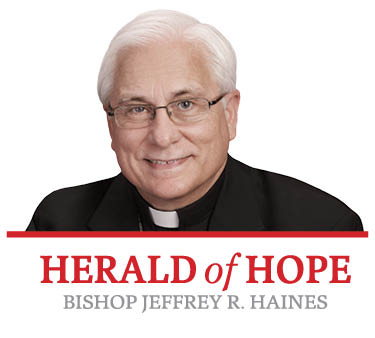 Although much time has passed since the spring meeting of the United States Conference of Catholic Bishops (June 13-15) in Fort Lauderdale, Florida, I still think it is important to share some of the issues discussed. Once again, the bishops seemed conscious of many of the concerns currently on the minds and in the hearts of the American people.
Although much time has passed since the spring meeting of the United States Conference of Catholic Bishops (June 13-15) in Fort Lauderdale, Florida, I still think it is important to share some of the issues discussed. Once again, the bishops seemed conscious of many of the concerns currently on the minds and in the hearts of the American people.
Cardinal Daniel DiNardo, the Archbishop of Galveston-Houston and the President of the USCCB, began the proceedings by issuing a formal statement regarding some of the migration policies being enforced by the administration of President Donald Trump. He particularly was upset about the possible danger of the decision not to recognize the right to asylum of women fleeing from situations involving the threat of domestic violence: “At its core, asylum is an instrument to preserve the right to life. The attorney general’s recent decision elicits deep concern because it potentially strips asylum from many women who lack adequate protection. These vulnerable women will now face return to the extreme dangers of domestic violence in their home country. This decision negates decades of precedents that have provided protection to women fleeing domestic violence.” He also issued a strong condemnation of the practice of family separation as a means of implementing the “Zero Tolerance Policy” in limiting entrance to our national border. “Our government has the discretion in our laws to ensure that young children are not separated from their parents and exposed to irreparable harm and trauma. Families are the foundational element of our society and they must be able to stay together. While protecting our borders is important, we can and must do better as a government, and as a society, to find other ways to ensure that safety. Separating babies from their mothers is not the answer and is immoral.”
The bishops also were encouraged to support a recent “Declaration on Climate Control” issued by the Catholic Climate Covenant, a coalition of 17 national partners that offers guidance in directing the response of the Church in the United States in implementing the Catholic Social Teaching on ecology. The Declaration takes issue with the recent decision by the Trump Administration to withdraw from the 2015 Paris Agreement, which listed goals to avoid the effects of climate change. The declaration states, “Climate change is an urgent moral issue because it compromises the future of our common home, threatens human life and human dignity, and adds to the hardships already experienced by the poorest and most vulnerable people both at home and abroad.”
A revision of the “Charter for the Protection of Children and Young People” was presented and accepted by the Bishops. The core values of the original charter were retained with the addition of new language urging all dioceses to never waver in the commitment to protect and defend the young from the threat of sexual abuse and to diligently reach out with compassion and care for the victim-survivors who have endured such a tragedy. Emphasis was placed upon the importance of avoiding complacency in completing the tasks which have been successful in helping to build a culture of protection and healing in the Church: the establishment and use of review boards, safeguarding training, timely background checks, accurate record-keeping and annual audits.
Approval also was granted to a formal statement entitled “Encountering Christ in Harmony: A Pastoral Response to our Asian and Pacific Island Brothers and Sisters.” The statement provides a framework for dioceses to develop a plan to integrate members of the diverse Asian and Pacific cultures into the very heart of Church life. The structure of the document elicits a number of “faith expressions” and “faith engagements” aimed at cultivating the vibrancy of the gifts of this community, one of the fastest growing segments of the Catholic population.
The Committee on Divine Worship introduced and found acceptance for several new translations of prayers, mostly comprised of collects for the celebration of Feast Days of the Saints and the “Proper of Time” for the Liturgy of the Hours.
The Committee on Doctrine offered an addition to the “Ethical and Religious Directives for Catholic Health Services.” With the growing number of partnerships and collaboration among hospitals and health care institutions, the addition provides guidelines for the local bishop and the administrators of Catholic institutions to preserve the moral principles and teachings of the Church when considering the possibility of cooperating with non-Catholic medical organizations. The goal is to ensure that becoming associated with a collaborating partner will not risk or undermine the “institution’s ability to fulfill its mission of providing health care as a witness to the Catholic faith and an embodiment of Jesus’ concern for the sick.” Institutional connections which might involve the Catholic health care provider in moral wrongdoing or the danger of scandal are never permitted.
Finally, in light of and in preparation for the upcoming elections, two new and additional elements were proposed and accepted for the document “Forming Consciences for Faithful Citizenship.” As you may recall, the purpose of this document is to inspire ongoing participation in civic life, include faith in political deliberation and decision-making, and practice civility in political discourse. The new elements will include a short introductory letter and a video which will address the current political context and highlight some of the key issues which have moral and theological implications.
